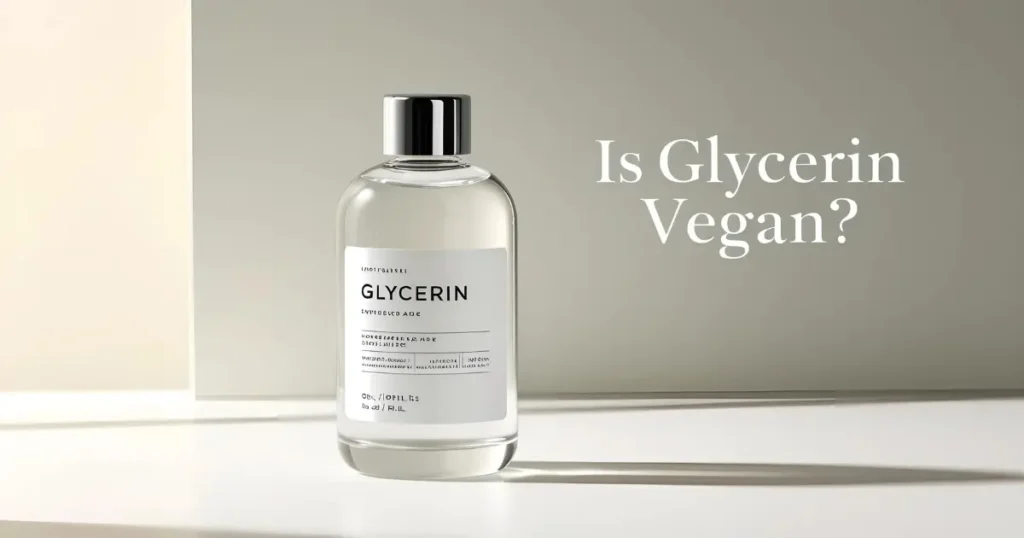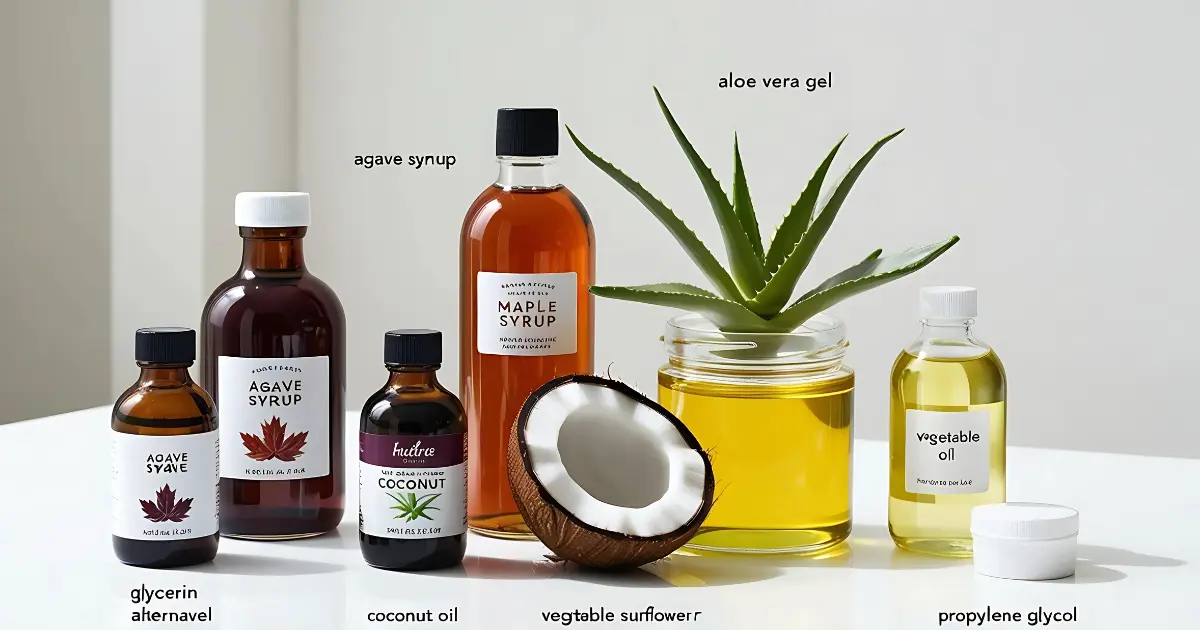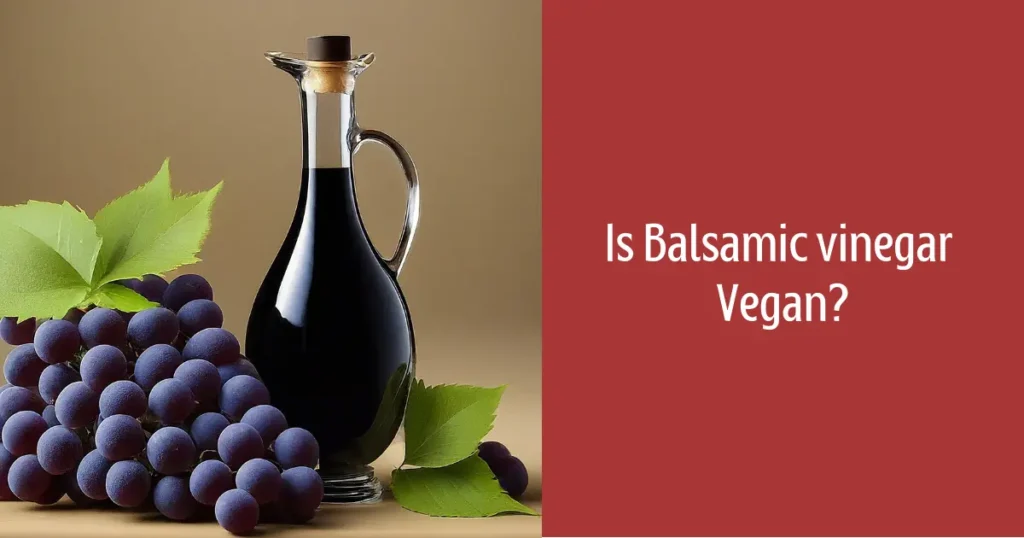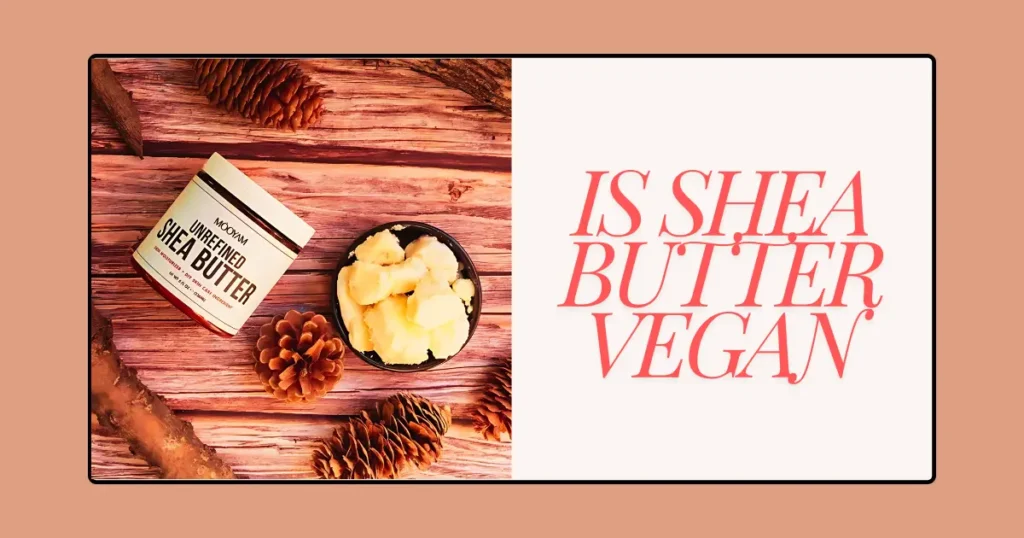Glycerin, also known as glycerol, is a simple compound with the chemical formula C₃H₈O₃. It is widely used in a range of products, including food, skincare, cosmetics, and pharmaceuticals, due to its moisturizing properties and ability to act as a sweetener and solvent. But, is glycerin vegan? Glycerin can be vegan. It’s often derived from vegetable oils like palm, coconut, or soybean. However, some glycerin products might be derived from animal fats.
How Glycerin is Made
Glycerin can be produced from multiple sources. On one hand, it is often extracted from plant-based oils, such as palm, soybean, and coconut oil, which makes it vegan-friendly. On the other hand, glycerin can also be derived from animal fats, specifically tallow, which is obtained from cows and other animals. This form of glycerin is non-vegan. Additionally, there is a synthetic version of glycerin that is produced in laboratories using petrochemical feedstocks like propene. Since synthetic glycerin is not derived from any animal sources, it is considered vegan.
Common Ingredients in Glycerin
Glycerin’s primary components include:
- Triglycerides: Found in both plant oils and animal fats, they are converted into glycerin through chemical processes like saponification or hydrolysis.
- Fatty Acids: These are broken down during glycerin production and contribute to its moisturizing properties.
- Glycerol Molecules: The backbone of glycerin, these molecules are crucial for its role as a humectant and sweetener.
Is Glycerin Vegan?
Glycerin can be either plant-based or animal-based. In the food and cosmetics industries, most glycerin tends to be derived from plant oils like soybeans or palm oil, but there are no guarantees without proper verification. Some products may use animal fats, particularly tallow, to produce glycerin, which makes it non-vegan.
potential non-vegan ingredients in Glycerin
When it comes to glycerin, several potential non-vegan ingredients might raise concerns, especially regarding its source and production methods:
- Tallow (Animal Fat): It can be derived from tallow, a rendered form of animal fat, making it non-vegan. This is commonly found in older glycerin production methods.
- Gelatin: Sometimes, gelatin, another animal-derived product, may be involved in the refining process of glycerin, particularly in pharmaceuticals.
- Lanolin: Occasionally, glycerin may be derived from lanolin, a substance obtained from sheep’s wool, which could be used in cosmetics and skincare products.
- Stearic Acid: This is another ingredient that can be animal-derived, though it is also available from plant sources. It might be present in formulations containing glycerin.
These ingredients can be concerning for vegans, so it is important to verify whether the glycerin is labeled as “vegetable glycerin” or certified vegan to avoid any animal-derived substances.
Alternatives of Glycerin
- Agave Syrup (Vegan)
Agave syrup is a plant-based sweetener that can be used as an alternative to glycerin in food products, especially when glycerin is used to retain moisture or as a sweetening agent. Since it’s derived from the agave plant, agave syrup is vegan. - Maple Syrup (Vegan)
Another plant-based option, maple syrup is a natural sweetener that can replace glycerin in both food and skincare. It provides a similar consistency and moisture-locking quality, making it a great vegan substitute. - Aloe Vera Gel (Vegan)
Aloe vera gel is a common vegan-friendly alternative to glycerin in cosmetics and skincare products. It acts as a humectant, helping to retain moisture and hydrate the skin. Since it’s derived from the aloe plant, it’s entirely plant-based and suitable for vegans. - Coconut Oil (Vegan)
Coconut oil can be used as a substitute for glycerin in various skincare and personal care products. It has moisturizing properties similar to glycerin and is plant-based, making it vegan. It’s particularly effective in soaps and lotions. - Vegetable Oil (Vegan)
Certain vegetable oils, like olive or sunflower oil, can replace glycerin in skincare and haircare products. These oils are vegan and provide similar moisturizing effects. - Propylene Glycol (Generally considered vegan)
Propylene glycol is a synthetic alternative that can mimic glycerin’s properties in various products like skincare and food. Although it’s a chemical compound, it is not derived from animals, so it is generally considered vegan. However, some vegans may prefer natural plant-based alternatives.
While glycerin is often vegan, it’s important to verify the source, especially for strict vegans. Plant-derived glycerin is more common, but it’s essential to check product labels or contact manufacturers if the source is unclear. Additionally, vegans concerned with environmental ethics may want to consider the impact of palm oil on plant-based glycerin.






